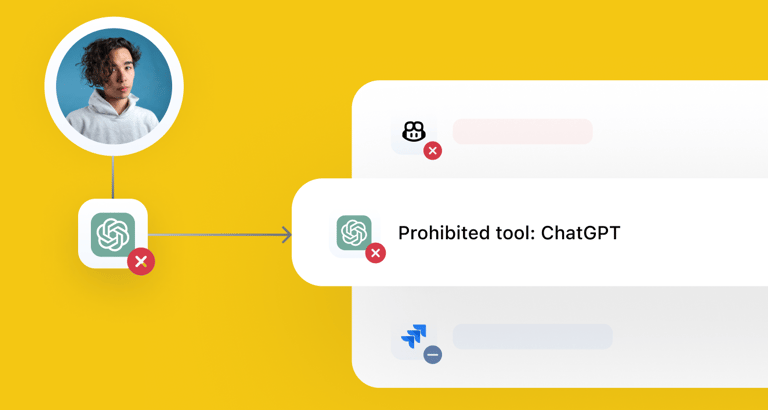AI-assisted development accelerates software delivery, but it also introduces new risks when AI-generated code, prompts, and tool usage are not governed or attributed.
Without visibility into how AI tools are used by developers, organizations struggle to enforce security standards, licensing policies, and compliance requirements across the SDLC.
When developer and AI actions cannot be traced, risks introduced during development often go undetected until they surface as incidents or compliance failures.
AI-assisted coding tools, like Copilot and ChatGPT, are transforming how developers approach programming tasks. However, the integration of generative AI into development workflows also presents significant challenges:
Insecure AI-Generated Code
AI tools may generate code that does not adhere to secure coding standards, introducing vulnerabilities such as injection flaws or insecure patterns.AI Code Governance and Compliance Gaps
AI-generated code may violate licensing requirements, intellectual property policies, or internal development standards when usage is not governed.Data Exposure and Leakage
Sensitive information may be exposed through AI prompts or inadvertently embedded in AI-generated code.Unattributed AI Usage
When AI contributions are not linked to specific developers, organizations lose accountability and remediation clarity.
The risks associated with generative AI tools are not hypothetical. Public incidents have demonstrated that unmanaged AI usage can lead to security exposure, licensing risk, and data leakage—reinforcing the need for developer-aware governance of AI-assisted development:
GitHub Copilot Licensing Violation (2023)
An AI-powered coding assistant generated code matching 1% of public repository snippets, including GPL-licensed code. Companies risked legal disputes and potential forced open-sourcing of proprietary projects due to inadvertent license violations.Samsung Data Leak via ChatGPT (2023)
In May 2023, Samsung employees accidentally exposed confidential data while using ChatGPT to review internal documents and code. As a result, the company banned generative AI tools to prevent future breaches.Amazon on sharing confidential information with ChatGPT (2023)
Amazon issued a warning to employees about sharing confidential information when using generative AI platforms like ChatGPT. The company emphasized the need to avoid disclosing sensitive company details to AI models to prevent potential data breaches. The warning came after concerns that using generative AI tools might inadvertently expose proprietary or confidential business data
While many organizations embrace AI for code generation, most are flying blind when understanding the risks. Archipelo supports AI code posture by making AI-assisted development observable—linking AI tool usage, AI-generated code, and resulting risks to developer identity and actions across the SDLC. By offering a transparent view of AI tool usage and its impact on code quality, Archipelo helps organizations take control of their AI usage and make informed, responsible decisions.
How Archipelo Supports AI Code Posture
AI Code Usage & Risk Monitor
Monitor AI tool usage across the SDLC and correlate AI-generated code with security risks and vulnerabilities.Developer Vulnerability Attribution
Trace vulnerabilities introduced through AI-assisted development to the developers and AI agents involved.Automated Developer & CI/CD Tool Governance
Inventory and govern AI tools, IDE extensions, and CI/CD integrations to mitigate shadow AI usage.Developer Security Posture
Generate insights into how AI-assisted development impacts individual and team security posture over time.
AI-assisted development requires the same discipline applied to any other part of the SDLC: visibility, attribution, and governance.
When AI usage is not governed, organizations face increased exposure to security risk, compliance failures, and operational disruption. When AI usage is observable and attributed, teams can innovate responsibly.
Archipelo delivers developer-level visibility and actionable insights to help organizations reduce AI-related developer risk across the SDLC.
Contact us to learn how Archipelo supports secure and responsible AI-assisted development while aligning with DevSecOps principles.


